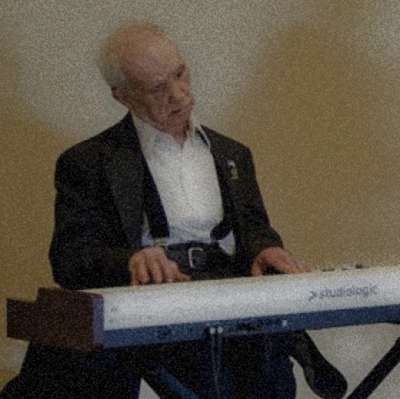The Sunday Poem: “Blue Ash” by Sean Howard
free
what
bars?
intra-
views,
posit-
ions
o-
pen.
free
what
bars?
intra-
views,
posit-
ions
o-
pen.
An abstract poetic view of an abstract jazz recording…
...The fierce resistance…to Revelation! Disordered
listeners. The forest clearing in the thicket… The
Universe expanding on the Theme… The
Future finally right
now?
Inspired by the essays collected in the jazz and cultural critic Nat Hentoff’s 2010 book At the Jazz Band Ball: Sixty Years on the Jazz Scene, in this series of poems Sean Howard uncovers new relationships and resonances in the author’s writing – reusing, recycling, and remixing text from the book as poetry – while allowing him the opportunity to pay a personal tribute to a writer he reveres.
...“Community Bookshelf” is a twice-yearly space where writers who have been published on Jerry Jazz Musician can share news about their recently authored books and/or recordings. This edition includes information about books published within the last six months or so (September, 2024 – March, 2025)
...free jazz
the perfect soundtrack
for chaos
Eric Dolphy
.on my mind
as I swing blue
Straight Up and Down
In this, the 17th major collection of jazz poetry published on Jerry Jazz Musician, 50 poets from all over the world again demonstrate the ongoing influence the music and its associated culture has on their creative lives.
...One-third of the Winter, 2024 collection of jazz poetry is made up of poets who have only come to my attention since the publication of the Summer, 2023 collection. What this says about jazz music and jazz poetry – and this community – is that the connection between the two art forms is inspirational and enduring, and that poets are finding a place for their voice within these virtual pages.
...A collection in which over 30 poets communicate their appreciation for jazz music in poems no longer than seven lines.
....This collection of jazz poetry – the largest yet assembled on Jerry Jazz Musician – demonstrates how poets who are also listeners of jazz music experience and interact with the spontaneous art that arises from jazz improvisation, which often shows up in the soul and rhythm of their poetic language.
...“It’s not exclusive, but inclusive, which is the whole spirit of jazz.”
-Herbie Hancock
.
And…this spirit is not limited to the musicians, because celebrating jazz is rich in creative opportunity for writers and visual artists as well. The 54 poets who contribute to this poetry collection are living proof of that.
As always, thanks to the poets, and I hope you enjoy…
Joe
...In this winter collection of diverse themes and poetic styles, 55 poets wander the musical landscape to explore their spirit and enthusiasm for jazz music, its historic figures, and the passion, sadness, humor and joy it arouses.
...“Community Bookshelf” is a twice-yearly space where writers who have been published on Jerry Jazz Musician can share news about their recently authored books and/or recordings. This edition includes information about books published within the last six months or so (March – September, 2024)
...From a dark corner, night crawls across a wood-board floor
warped from a life beneath boots and spilled beer.
Her music is a moan, a collection of sorrows,
lost love, broken hearts, and illegal dreams.
Leadbelly, Robert Johnson, Charley Patton — we are all familiar with the story of the Delta blues. Fierce, raw voices; tormented drifters; deals with the devil at the crossroads at midnight.
In an extraordinary reconstruction of the origins of the Delta blues, historian Marybeth Hamilton demonstrates that the story as we know it is largely a myth. The idea of something called Delta blues only emerged in the mid-twentieth century, the culmination of a longstanding white fascination with the exotic mysteries of black music.
...In the final column of his thirty year career as jazz critic of the Village Voice, Gary Giddins wrote, “I’m as besotted with jazz as ever, and expect to write about it till last call, albeit in other formats. Indeed, much in the way being hanged is said to focus the mind, this finale has made me conscious of the columns I never wrote.”
...Village Voice writer Gary Giddins, who was prominently featured in Ken Burns’ documentary Jazz, and who is the country’s preeminent jazz critic, joins us in a conversation recorded on June 20, 2003 — and then slightly revised in October — about the profession of jazz criticism.
The conversation is an autobiographical look at the writer’s ascension in his field, and includes candid observations of other prominent critics. It concludes with a unique “Blindfold Test” that asks Giddins to name the jazz writer responsible for the essay excerpt he is spontaneously shown.
...
Click here to read about plans for the future of Jerry Jazz Musician.





”The Subtle Art of Dinner Music” by Fred Shaw
The Sunday Poem is published weekly, and strives to include the poet reading their work.... Fred Shaw reads his poem at its conclusion
Click here to read previous editions of The Sunday Poem




























Dear Readers:
Reader funding helps support the expense of publishing this website, and to keep it free of advertising – which is a rarity in the dot-com world. Many thanks to those who have recently contributed, and to those who have done so multiple times. Your support is very much appreciated.
If you are able, please consider making a contribution? Information regarding how to do so is found by clicking here.
For viewing my long range vision for Jerry Jazz Musician, please click here.
To view the content on Jerry Jazz Musician, simply click on the “close” tab.
Thank you!
Joe Maita
Editor/Publisher
,

